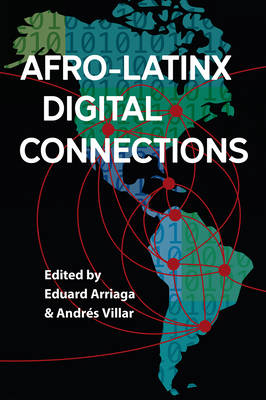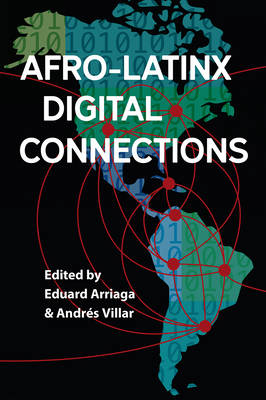
- Afhalen na 1 uur in een winkel met voorraad
- Gratis thuislevering in België vanaf € 30
- Ruim aanbod met 7 miljoen producten
- Afhalen na 1 uur in een winkel met voorraad
- Gratis thuislevering in België vanaf € 30
- Ruim aanbod met 7 miljoen producten
Afro-Latinx Digital Connections
Omschrijving
How Black Latinx communities are using digital technology to achieve visibility and social justice
This volume presents examples of how digital technologies are being used by people of African descent in South America and the Caribbean, a topic that has been overlooked within the field of digital humanities. These case studies show that in the last few decades, Black Latinx communities have been making themselves visible and asserting long-standing claims and rights through digital tools and platforms, which have been essential for enacting discussions and creating new connections between diverse groups.
Afro-Latinx Digital Connections includes both research articles and interviews with practitioners who are working to create opportunities for marginalized communities. Projects discussed in this volume range from an Afrodescendant digital archive in Argentina, blog networks in Cuba, an NGO dedicated to democratizing technology in Brazilian favelas, and the recruitment of digital media to fight racism in Peru. Contributors demonstrate that these tools need not be state of the art to be effective and that they are often most useful when employed to sustain a resilience that is deep and historically grounded.
Digital connections are shown here as a means to achieve social justice and to create complex self-representations that challenge racist images of Afrodescendant peoples and monolithic conceptions of humanity. This volume expands the scope of digital humanities and challenges views of the field as a predominantly white discipline.
Contributors: Sandra AbdAllah-Álvarez Adebayo Adegbembo Maya Anderson-González Eduard Arriaga Silvana Bahia Yvonne Captain Monica Carrillo Yancy Castillo Alí Majul Maria Cecilia Martino Andrés Villar
A volume in the series Reframing Media, Technology, and Culture in Latin/o America, edited by Héctor Fernández L'Hoeste and Juan Carlos Rodríguez
Specificaties
Betrokkenen
- Uitgeverij:
Inhoud
- Aantal bladzijden:
- 194
- Taal:
- Engels
- Reeks:
Eigenschappen
- Productcode (EAN):
- 9781683402046
- Verschijningsdatum:
- 1/06/2021
- Uitvoering:
- Hardcover
- Formaat:
- Genaaid
- Afmetingen:
- 152 mm x 229 mm
- Gewicht:
- 453 g

Alleen bij Standaard Boekhandel
Beoordelingen
We publiceren alleen reviews die voldoen aan de voorwaarden voor reviews. Bekijk onze voorwaarden voor reviews.










